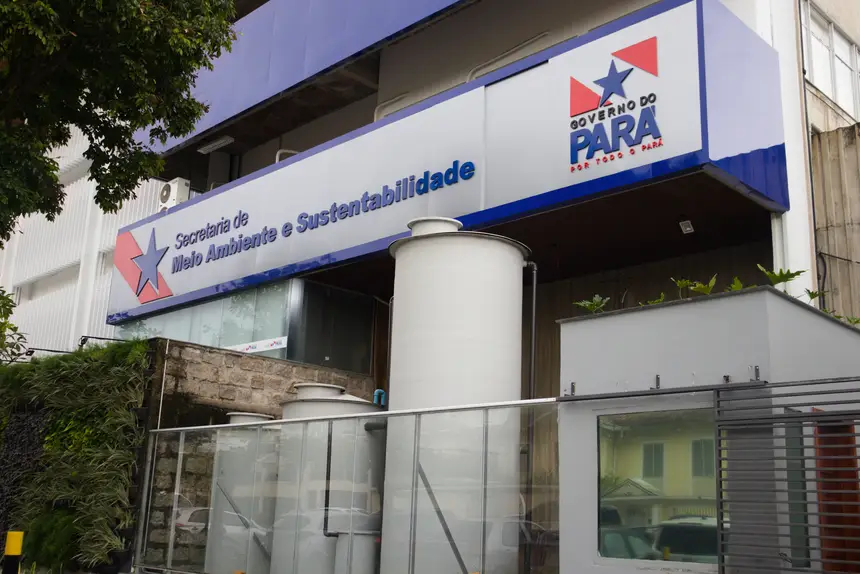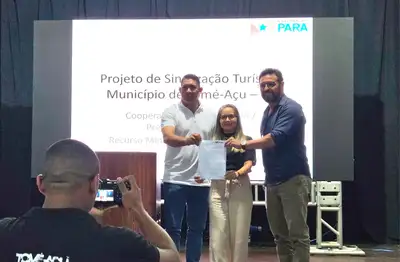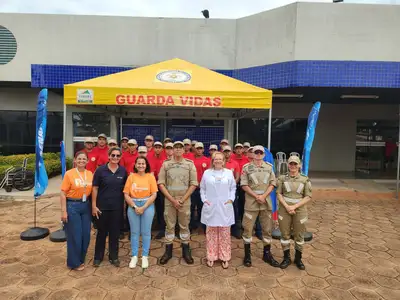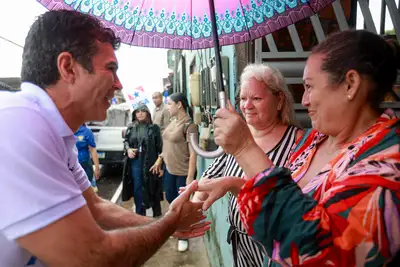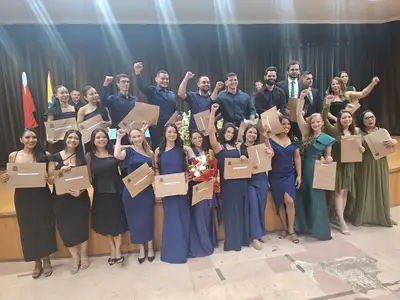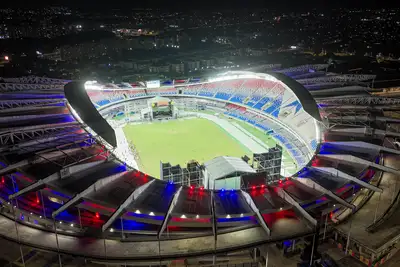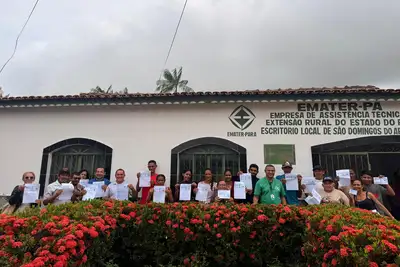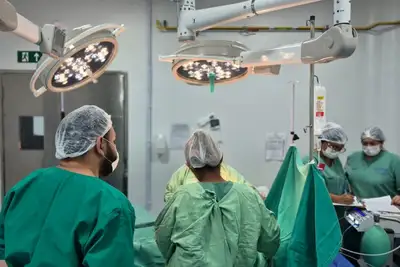Semas signs agreement with the OCB/PA System to strengthen sustainable cooperativism
The cooperation integrates actions outlined in the State Plan Amazônia Agora, the State Policy on Climate Change, and the Regulariza Pará program
The State Secretariat for Environment, Climate and Sustainability (Semas) and the Brazilian Cooperatives Organization of the State of Pará (OCB/PA) have signed a technical cooperation agreement aimed at promoting sustainable cooperativism, encouraging collective entrepreneurship with social and environmental responsibility.
The work plan includes goals such as the environmental regularization of 70% of rural properties owned by cooperative members, support for the creation and strengthening of associations in traditional communities, and the implementation of at least 25 training actions on topics such as environmental education, circular economy, and women's entrepreneurship.
The cooperation, formalized with the publication in the State Official Gazette this Thursday (2), integrates actions outlined in the State Plan Amazônia Agora (PEAA), the State Policy on Climate Change, and the Regulariza Pará program. Among the objectives is the strengthening of cooperative governance, the integration of cooperative members, and the creation of income-generating opportunities linked to environmental, social, and governance (ESG) practices.
The initiative also reinforces the commitment to the Sustainable Development Goals (SDGs), established by the United Nations (UN), which seek to reconcile economic development with environmental responsibility and social justice, such as SDG 1 promoting sustainable economic opportunities through cooperativism; SDG 8 encouraging collective entrepreneurship based on fair and sustainable practices; SDG 12 promoting responsible consumption and production; SDG 13 encouraging productive models that respect ecological limits and reduce pressure on ecosystems; and SDG 15 supporting productive chains that promote biodiversity conservation and sustainable use of forest resources.
The Deputy Secretary for Environmental Management and Regularity of Semas, Rodolpho Zahluth Bastos, emphasized that the initiative strengthens the protagonism of cooperative members. “We are joining efforts so that cooperative members have more access to public policies and can play a leading role in the Pará bioeconomy. Cooperativism is a powerful tool for social and environmental transformation,” he said.
The president of OCB/PA, Ernandes Raiol, stated that the agreement marks a significant advance for the cooperative movement. “Pará cooperatives will have better conditions to grow in an organized and sustainable manner, with technical and institutional support from the State. This means more opportunities for family farmers, traditional peoples, and local entrepreneurs,” he highlighted.
Support for the structuring of cooperatives - As a result of the partnership between Semas and OCB/PA, an initial delivery of support for the structuring of cooperatives in the state of Pará will take place on the 16th, in Curionópolis. The beneficiary will be the Family Agriculture Cooperative of Serra Pelada (COOASP), which works in the production of vegetables, pulps, and artisanal sweets.
On that occasion, the cooperative will receive a package of training courses (cooperativism, entrepreneurial training for women cooperators, collective businesses), consumables, and equipment, including a packing machine, which will serve to automate the process of bottling fruit pulps, increasing the cooperative's production capacity and competitiveness.
According to Andreos Leite, a consultant for OCB/PA, the packing machine will enable the cooperative to make a technological leap and adds value "by allowing modern, sustainable, and attractive packaging, capable of positioning the product in differentiated niches, such as gourmet, export, and premium bioeconomy," says Andreos.



